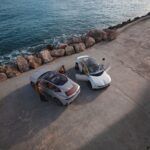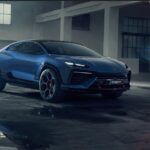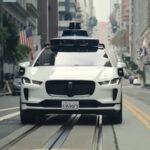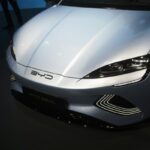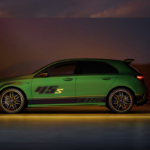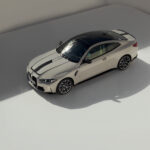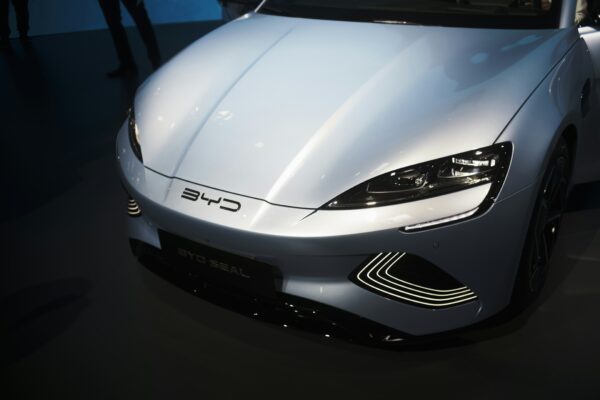BYD has been instrumental in various sectors including electronics, automotive, renewable energy, and rail transit it provides extensive new energy solutions with zero emissions. Established in 1995, it has erected more than 30 industrial hubs spanning six continents and its annual turnover surpasses CNY 200 billion.
When BYD embarked on its electric vehicle (EV) journey, it transitioned from producing batteries for mobile phones (serving both Nokia and Motorola) to manufacturing automotive batteries through Yadi Electronics.
Through the acquisition of Qinchuan Machinery Works, a small car manufacturer, it established a new automotive division in 2002 and commenced car production. Subsequently, then partnered with Daimler and Toyota to acquire expertise in EV manufacturing, reciprocating by sharing its own battery manufacturing technologies.
Additionally, collaborates closely with Foshan Plastics Group on optoelectronics, specifically in developing electronic sensors for light detection and control.
In 2018, it forged a partnership with Chinese tech titan Baidu to enhance the software capabilities and service offerings of its EVs for the broader market.
This mutually advantageous agreement enabled it’s EV’s to integrate Baidu Map and intelligent-driving software, while granting Baidu access to BYD’s open-source platform D++ and knowledge of hardware alongside data access.
Lets dive into some Facts of Chinese EV Giant
Table of Contents
1. First Failure:
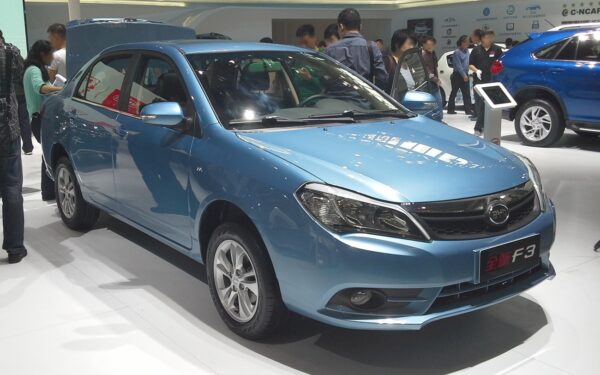
In its initial setback, at the 2006 Beijing Auto Show, revealed the electric version of the F3, named the F3e. Boasting a range exceeding 300 km (186 mi) on electric power alone, the car was slated for production within three years starting from 2007.
However, it’s plans for production were scrapped in December 2010, attributed to the inadequate support in charging infrastructure.
2. Rapid growth surpassed TESLA:

Exceeding Tesla’s rapid expansion, BYD experienced an extraordinary surge in vehicle sales from 2020 to 2023. In 2023 alone, the company achieved a global sales volume of 3,024,416 vehicles, a staggering seven-fold increase compared to the 2020 sales of 427,301 vehicles.
This remarkable growth was fueled in part by the escalating demand for new energy vehicles in China, which accounted for 27.51 percent of total vehicle sales in the country in 2022, a substantial leap from 5.81 percent in 2020. It surpassed Tesla to become the world’s largest plug-in electric vehicle manufacturer by selling 641,001 vehicles in the first half of 2022.
Additionally, it halted the production of conventional internal combustion engine vehicles in March 2022, shifting its focus towards new energy vehicles. By September 2022, it achieved a significant milestone by becoming the first automaker in China to manufacture one million new energy vehicles within a single year. In November 2023, celebrated yet another historic achievement by producing its 6 millionth new energy vehicle.
3. world’s largest plug-in hybrid electric :
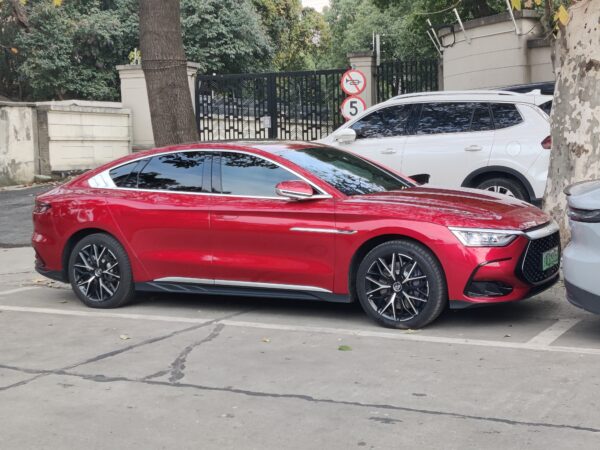
It continued to maintain its status as the world’s largest plug-in hybrid electric vehicle manufacturer by 2023, alongside being the second-largest battery electric vehicle manufacturer after Tesla. Its global market shares stood at 21.4 percent and 15 percent, respectively. Additionally, held a significant 36 percent market share in the new energy vehicle segment in China as of September 2023.
4. BYD’s smallest and cheapest battery electric vehicle :
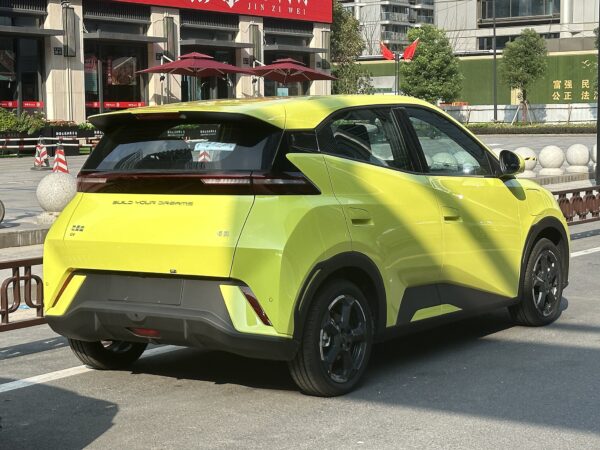
Introducing its smallest and most affordable battery electric vehicle, they unveiled the Seagull in April 2023. Featuring a 4-seater, 5-door configuration in a hatchback body style, the Seagull entered a segment predominantly occupied by smaller 3-door cars.
The vehicle quickly gained traction in China, reaching a production milestone of 200,000 units by November 29, 2023, just seven months after its market debut.
5. “unite” to take on foreign manufacturers :
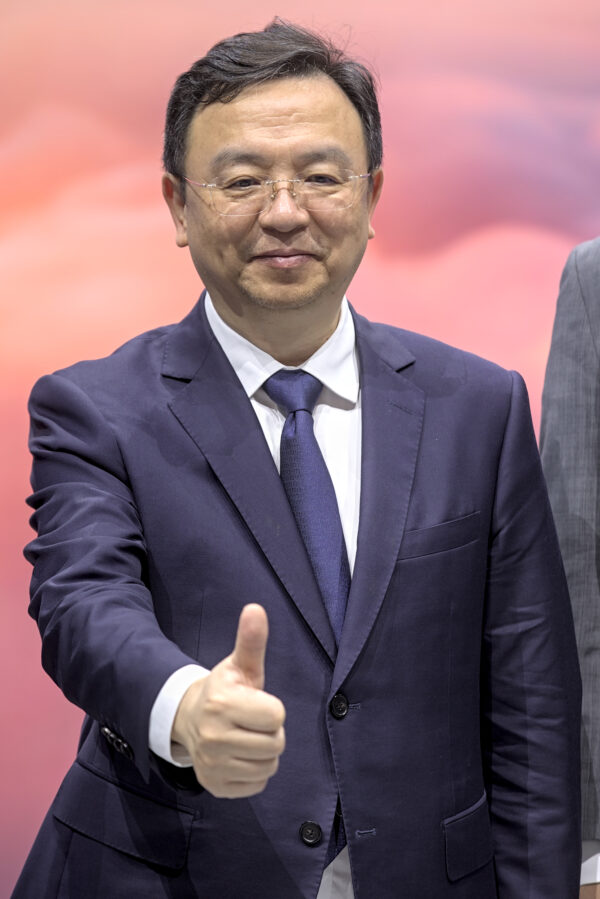
Advocating for unity among local Chinese car manufacturers, Wang Chuanfu, while commemorating BYD’s production of its 5 millionth new energy vehicle in August 2023, urged collaboration to confront foreign competitors. Responding to the intense price competition in the Chinese market throughout 2023, Wang emphasized the emotional significance for the Chinese population to witness a domestic brand attain global recognition. This initiative, titled “Together, we are Chinese autos,” received positive responses from the CEOs of Nio and Li Auto.
6. Identity “Logo” Crisis:

Regarding brand identity, utilized between 2003 and 2007, featured blue and white colors symbolizing the sky and clouds, respectively. However, the logo faced criticism due to its resemblance to BMW’s. It was subsequently replaced with the parent company’s logo upon the introduction of the F1 (later renamed F0). On January 1, 2021, it adopted a new brand logo design, while other subsidiaries retained the previous logo. Subsequently, on February 17, 2022, it’s logo underwent slight revision, aligning with contemporary graphic design trends, coinciding with the introduction of the new Company logo.
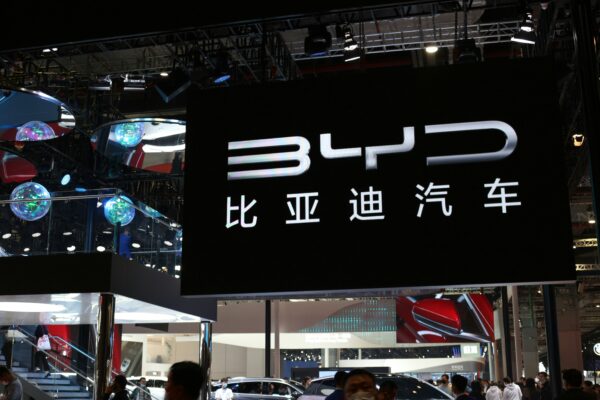
7.BYD Bus :
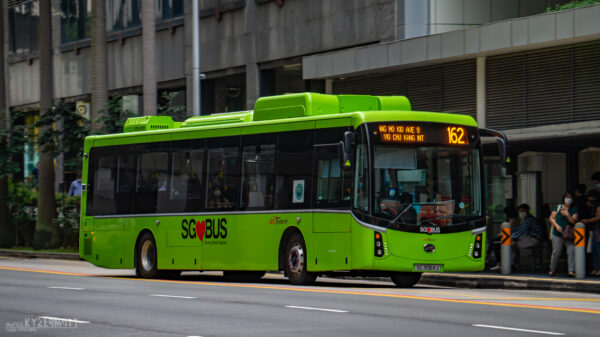
Expanding its presence globally, it established its North American headquarters in Los Angeles in 2011. The company’s electric bus plant in Lancaster, California commenced operations in 2014, supplying buses to the Los Angeles Metro Bus system since 2015. In 2016, they entered the Indian automotive sector as a supplier of batteries and bus chassis to Olectra Greenwich Ltd
8. largest battery electric truck manufacturer in the world :
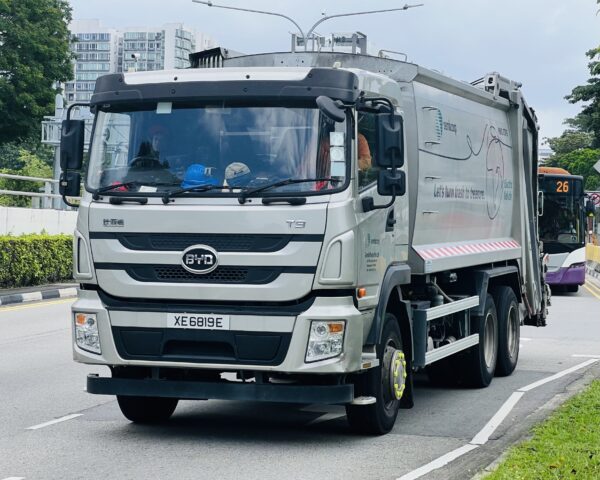
Emerging as one of the largest manufacturers of battery electric trucks worldwide, it boasts a fleet exceeding 8,000 trucks in service globally as of 2021. The company has sold over 200 battery electric trucks in the United States, offering a range of models including Class 5, Class 6, Class 7, and Class 8 trucks, along with refuse trucks, street sweepers, mining trucks, and construction vehicles.
9. BYD Technologies :

Highlighting their Technologies, the company introduced the DM-i and DM-p technologies, succeeding the DM technology. DM-i is tailored for efficiency-oriented front-wheel drive models, whereas DM-p is designed for performance-oriented all-wheel drive models. These models utilize series-parallel plug-in hybrid technology with a dedicated hybrid transmission (DHT), comprising a high-efficiency petrol engine (Xiaoyun) capable of powering an electric generator, alongside a primary electric motor powered by batteries and/or an electric generator. The Xiaoyun engine, employing the Atkinson cycle, boasts an ultra-high compression ratio (CR) of 15.5 and a Brake Thermal Efficiency (BTE) of 43%, purportedly the world’s highest for a production petrol engine.
Additionally, it equips most of its passenger cars with DiLink, an integrated service ecosystem comprising technology and content developed internally. DiLink integrates in-vehicle network systems, cloud communication, AI, big data, and other technologies. Notably, one of the popular features of DiLink in the Chinese market is the inclusion of karaoke, making it one of the first brands in China to offer karaoke in the in-car entertainment system. Moreover, it introduced the Blade battery, claimed to exhibit superior safety characteristics in tests compared to conventional lithium batteries.

10. Best-selling models :
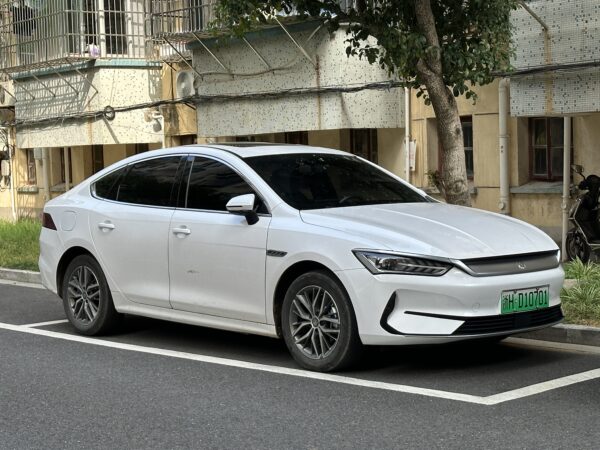
1. Qin Plus – 455,861 units sold globally.
2. Song Plus / Seal U – 427,070 units sold globally.
3. Yuan Plus / Atto 3 – 412,200 units sold globally.
4. Dolphin – 367,418 units sold globally.
5. Seagull – 280,216 units sold globally.
6. Han – 228,382 units sold globally.
7. Song Pro – 203,490 units sold globally.
8. Tang – 137,183 units sold globally.
FAQ
- You may also like – Limited Edition : Mercedes AMG A 45 S 4MATIC+ 2024 , The Best new BMW M4 Coupé, And BMW M4 Convertible 2024
- You Can Write to me on bestcarin .
